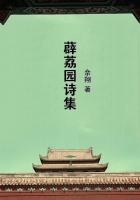As a consequence most story-tellers are driven to telling stories that depend on the point or "nub" and not on the narration. The storyteller gathers these up till he is equipped with a sort of little repertory of fun by which he hopes to surround himself with social charm. In America especially (by which I mean here the United States and Canada, but not Mexico) we suffer from the story-telling habit. As far as I am able to judge, English society is not pervaded and damaged by the story-telling habit as much as is society in the United States and Canada. On our side of the Atlantic story-telling at dinners and on every other social occasion has become a curse. In every phase of social and intellectual life one is haunted by the funny anecdote. Any one who has ever attended a Canadian or American banquet will recall the solemn way in which the chairman rises and says: "Gentlemen, it is to me a very great pleasure and a very great honour to preside at this annual dinner. There was an old darky once--" and so forth. When he concludes he says, "I will now call upon the Rev. Dr. Stooge, Head of the Provincial University, Haroe English Any Sense of Humour? to propose the toast 'Our Dominion.'"
Dr. Stooge rises amid great applause and with great solemnity begins, "There were once two Irishmen--" and so on to the end. But in London, England, it is apparently not so. Not long ago I had the pleasure of meeting at dinner a member of the Government. I fully anticipated that as a member of the Government he would be expected to tell a funny story about an old darky, just as he would on our side of the water. In fact, I should have supposed that he could hardly get into the Government unless he did tell a funny story of some sort. But all through dinner the Cabinet Minister never said a word about either a Methodist minister, or a commercial traveller, or an old darky, or two Irishmen, or any of the stock characters of the American repertory. On another occasion I dined with a bishop of the Church. I
expected that when the soup came he would say, "There was an old darky--" After which I should have had to listen with rapt attention, and, when he had finished, without any pause, rejoin, "There were a couple of Irishmen once--" and so on. But the bishop never said a word of the sort.
I can further, for the sake of my fellow-men in Canada and the United States who may think of going to England, vouchsafe the following facts: If you meet a director of the Bank of England, he does not say: "I am very glad to meet you. Sit down. There was a mule in Arkansas once," etc. How they do their banking without that mule I don't know. But they manage it. I can certify also that if you meet the proprietor of a great newspaper he will not begin by saying, "There was a Scotchman once." In fact, in England, you can mingle freely in general society without being called upon either to produce a funny story or to suffer from one.
I don't mean to deny that the American funny story, in capable hands, is amazingly funny and that it does brighten up human intercourse. But the real trouble lies, not in the fun of the story, but in the painful waiting for the point to come and in the strained and anxious silence that succeeds it. Each person around the dinner table is trying to "think of another." There is a dreadful pause. The hostess puts up a prayer that some one may "think of another." Then at last, to the relief of everybody, some one says: "I heard a story the other day--I don't know whether you've heard it--" And the grateful cries of "No! no! go ahead"
show how great the tension has been.
Nine times out of ten the people have heard the story before; and ten times out of nine the teller damages it in the telling. But his hearers are grateful to him for having saved them from the appalling mantle of silence and introspection which had fallen upon the table. For the trouble is that when once two or three stories have been told it seems to be a point of honour not to subside into mere conversation. It seems rude, when a story-teller has at last reached the triumphant ending and climax of the mule from Arkansas, it seems impolite, to follow it up by saying, "I see that Germany refuses to pay the indemnity." It can't be done. Either the mule or the indemnity--one can't have both.
The English, I say, have not developed the American custom of the funny story as a form of social intercourse. But I do not mean to say that they are sinless in this respect. As I see it, they hand round in general conversation something nearly as bad in the form of what one may call the literal anecdote or personal experience.
By this I refer to the habit of narrating some silly little event that has actually happened to them or in their sight, which they designate as "screamingly funny," and which was perhaps very funny when it happened but which is not the least funny in the telling.
The American funny story is imaginary. It never happened. Somebody presumably once made it up. It is fiction. Thus there must once have been some great palpitating brain, some glowing imagination, which invented the story of the man who was put off at Buffalo.
But the English "screamingly funny" story is not imaginary. It really did happen. It is an actual personal experience. In short, it is not fiction but history.















